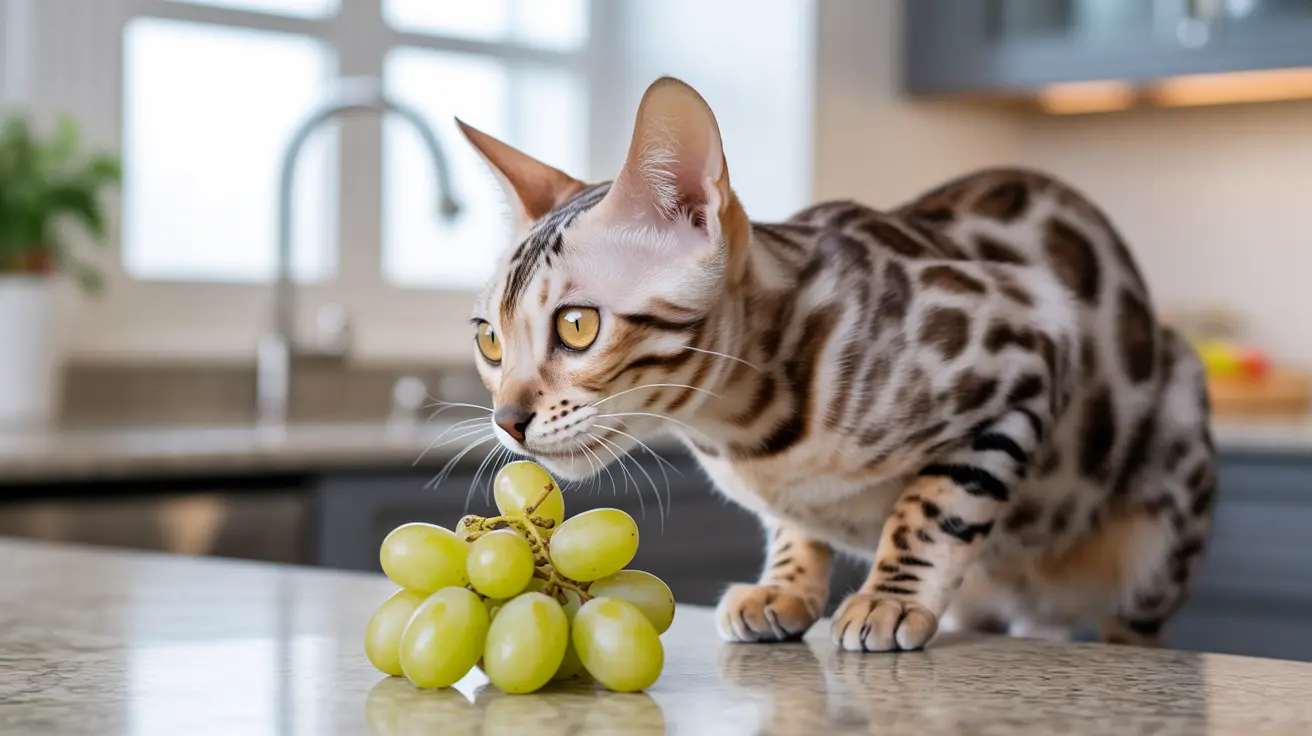Understanding Grape Toxicity in Cats
While many pet owners wonder "can cats have grapes," the answer is a definitive no. Grapes and their dried counterparts, raisins, can be severely toxic to cats, potentially leading to serious health complications including kidney failure. Though grape toxicity is more commonly reported in dogs, cats are equally susceptible to the dangers these fruits pose.
The mysterious nature of grape toxicity makes it particularly concerning - scientists haven't yet identified the specific compound that causes adverse reactions in pets. Whether it's tartaric acid, salicylates, or mycotoxins, the potential risks far outweigh any perceived benefits of feeding grapes to cats.
The Dangers of Grape Consumption in Cats
Even small amounts of grapes can potentially trigger severe reactions in cats. As little as 0.7 ounces of grapes per 2.2 pounds of body weight has been documented to cause kidney damage. For an average 10-pound cat, consuming just a dozen grapes could reach toxic levels.
The toxicity extends to all grape varieties and grape-derived products, including:
- Fresh grapes of any color
- Raisins
- Grape juice
- Foods containing grapes or raisins
- Wine-based sauces or marinades
Recognizing Signs of Grape Poisoning
Early detection of grape toxicity is crucial for successful treatment. Watch for these initial symptoms:
- Vomiting (usually within 2-12 hours)
- Lethargy
- Loss of appetite
- Increased thirst and urination
- Diarrhea
More severe symptoms may develop within 24-48 hours, including:
- Decreased or absent urination
- Abdominal pain
- Weakness
- Dehydration
- Collapse
Emergency Response and Treatment
If you suspect your cat has consumed grapes or raisins, immediate veterinary attention is essential. Don't wait for symptoms to appear, as early intervention can significantly improve outcomes. Veterinarians typically follow a treatment protocol that includes:
- Inducing vomiting (if ingestion was recent)
- Administering activated charcoal
- Providing IV fluid therapy
- Monitoring kidney function
- Supporting care for 48-72 hours or longer
Prevention and Safe Alternatives
The best approach to grape toxicity is prevention. Keep all grape products safely stored away from your cat's reach. Remember that cats are obligate carnivores and don't require fruits in their diet. If you want to offer your cat treats, stick to veterinarian-approved options specifically designed for felines.
Frequently Asked Questions
Can cats safely eat grapes, and what are the risks involved?
No, cats cannot safely eat grapes. The risks include severe kidney damage, gastrointestinal distress, and potentially fatal complications. Even small amounts can be dangerous, and there's no known safe quantity.
How do I recognize the symptoms of grape toxicity in my cat?
Look for vomiting within the first few hours, followed by lethargy, reduced appetite, and increased thirst. More severe symptoms include changes in urination, weakness, and abdominal pain.
What should I do immediately if my cat eats a grape or raisin?
Contact your veterinarian or emergency animal hospital immediately. Don't wait for symptoms to appear, as early intervention is crucial for the best outcome.
Is there a treatment or antidote for grape poisoning in cats?
While there's no specific antidote, treatment typically includes inducing vomiting, administering activated charcoal, and providing supportive care through IV fluids and kidney function monitoring.
How can I prevent my cat from accessing grapes or raisins at home?
Store all grape products in sealed containers in closed cabinets. Never leave grapes or raisins unattended on counters or tables. Educate all household members about the dangers of feeding grapes to cats.
Remember, when it comes to grapes and cats, it's always better to err on the side of caution. Keep these fruits completely out of your feline friend's reach and stick to a veterinarian-approved diet for optimal health and safety.






